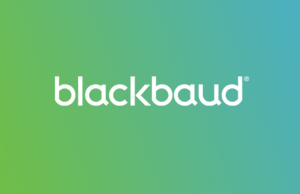Stop yelling at the IT guy; the Internet isn’t broken. Yet.
You might have noticed the “page loading” icon today on dozens of websites, including those of nonprofits Greenpeace USA, the Sierra Club, MoveOn.org and Common Cause. The icon hasn’t actually slowed the websites down. It’s meant to draw attention to the fact that net neutrality is in peril.
Clicking on the icon brings users to https://www.battleforthenet.com/sept10th/, where they can find out more about today’s virtual protest and take advocacy action.
“Freedom of the Internet is absolutely vital to nonprofit organizations, social justice organizations, independent media, small businesses, anybody that wants to communicate a message freely online,” said Victoria Kaplan, lead campaign director for MoveOn.org. “That’s why we’re seeing so many everyday people from artists to journalists to small business owners standing up for the real net neutrality and not the proposal that Tom Wheeler, FCC chairman, has laid out.”
Net neutrality, the idea that all web traffic is treated equally, has been under attack since April, when the Federal Communications Commission (FCC) changed its stance on paid priority. Paid priority would create a so-called Internet fast lane, with faster service for the websites of companies who pay extra for the privilege.
“But you can’t have a fast lane without also having a slower lane,” according to a statement from the Electronic Frontier Foundation in San Francisco. “And that means everyday websites — including journalistic websites and start-up companies that could compete with established web service — could be slow to load, even as our expectations for loading speed leap ahead in the coming years.”
The FCC released a proposal in May to allow paid priority, and opened a public comment period. The comment period will close on Sept. 15, but there is still time to email comments to [email protected].
Nonprofits do not have the resources to pay for faster service, argue many in the sector. “A ‘fast lane’ means there is also a ‘slow lane,’ and social sector organizations will inevitably be consigned there, with consequences for their mission achievement and with negative impact on the millions who depend on social sector organizations as a lifeline and for other vital services,” Karen Coppock, vice president of strategy and impact at TechSoup Global, based in San Francisco, said in May.
“MoveOn started 16 years ago when two people took to the Internet to voice their opinions about current events,” said Kaplan. “MoveOn would not exist if there was not a free and open Internet and we’re really seeing an affront to the future of innovation from the nonprofit sector to the business sector. We’re absolutely concerned about our future if this proposal goes through. It’s about our ability to communicate with the pub and not have companies that have the financial resources to have privileged access to people who have shown they want your message.”









